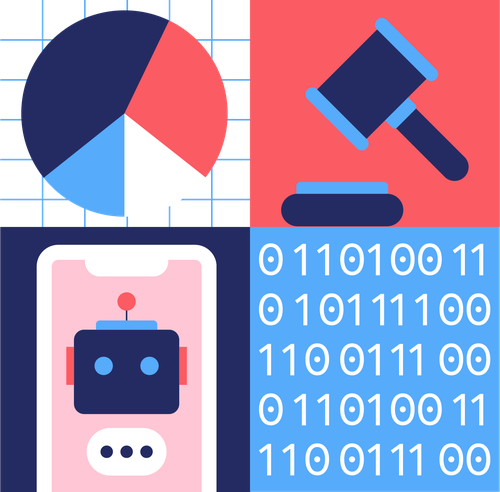It is nearly impossible to overestimate the importance of Party ideology in the politics of today’s China. It is not only the intellectual glue that holds 90 million Party members together, it is also an intellectual framework that frames the tasks and challenges the Party faces, and shapes and constrains solutions. This does not mean that all Party members hold similar, monolithic opinions, but there is a carefully monitored and manicured corpus of beliefs to which they must demonstrate fealty.
Like a seabed, Party ideology is a complex accretion of sedimentary ideas, forming over centuries. Some go back to imperial practice, where dominant state doctrine held social order and harmony as the highest good. This required that, in China’s highly hierarchical society, everyone learned to know their place and carry out the concomitant duties. After the fall of the empire, Marxism and Leninism were introduced to China in response to deep political crisis, as reformers sought to restore the nation to ‘wealth and strength’ (fuqiang). Marxism was attractive as it provided a scientific theory for historical progress, aimed at achieving a state of material abundance and, thereby, social harmony. In other words, the essence of what became Communist Party authority is to implement an objective and external scientific theory. Leninism provides the organisational component, in which a disciplined, professional party forms a vanguard leading society towards the promised destination. Yet safeguarding the CCP’s supreme authority also became a goal in itself. In the same way that airplane passengers should don their own oxygen mask before helping others, the Party believes enabling its own survival is the chief necessary condition for it to achieve its goal of the ‘great rejuvenation of the Chinese nation’. In the past decade, this has led to the construction of an increasingly capable security state, in which AI technology is now starting to play an important role.
Apart from maintaining its dominance, the Party has sought a specific approach to ensure national wealth and strength throughout its tenure in power. The first three decades of Party rule saw a pendulum between Maoist voluntarism and careful Soviet-style economic and social planners. Mao triumphed twice, initiating the disastrous Great Leap Forward and Cultural Revolution. After Mao’s death, the new paramount leader, Deng Xiaoping, looked for another way forward. As one of the only Chinese leaders to have travelled abroad, Deng recognised how far China lagged behind developed countries, and envisioned a path forward based on science and technology. In this view, science not only provided material progress, it also played an important role in social governance and management. Luminaries such as Qian Xuesen, the progenitor of China’s nuclear programme, explored how complex systems theory could both explain the functioning of the social order, and provide tools to predict and control it. In this view, social reality is a system conditioned by objective ‘laws’ (guilü) in the same way as the natural world. These laws are intelligible and can be used to engineer society in pursuit of historical progress. It may be trite (and, indeed, incorrect) to refer to China’s leadership as consisting largely of engineers, but the metaphor of social management as engineering is strong. Artists, for instance, are still referred to as ‘engineers of human souls’, while the complex development initiatives such as the 2017 AI Plan display clear influence of systems engineering thinking.

In this ideological view, the keyword is unity. There is only one accepted form of truth, which is both scientifically correct and morally good. There is only one political organisation with a sufficient grasp of that truth to ensure progress. There is only one integral nation, and in the words of Xi Jinping, ‘only when the country does well, can the individual do well’. This has major implications for notions of social governance. Ideology assumes the world can be perfected and made harmonious. Conflicts and contradictions, therefore, are indications that someone has, consciously or unconsciously, made a mistake. Government should create systems to educate and govern the well-meaning, vast majority of the population so they do not make mistakes, and to protect the Party and the nation from the small number of ‘enemies’ who seek to undermine its integrity. It should not be encumbered through legal niceties such as powerful individual rights. On the contrary, it should be empowered to make the required changes effectively. This means rights are only possible if there is a powerful state, and always conditional upon them not hindering the execution of the political programme.
However, in practice, the social ‘machine’ is highly complex. Consequently, realising the vision of engineering social change requires considerable information gathering and processing capabilities. This is where AI and big data technologies come in. For the first time in history, the leadership believes, digital technologies provide the data management abilities and the computational power to permit it to realise its project and propel China into the future. In this new, data-driven future, a number of perennial problems plaguing the Party will be eliminated. Smart devices, for instance, will gather data more efficiently and communicate them more sincerely than notoriously unreliable local governments. Nationwide integrated databases will liberate government-held information from the paper forms and incompatible formats in which they have been imprisoned – the ‘data islands’ as Dev Lewis describes them in his essay in this collection on social credit systems – and thus enable more efficient and automated forms of governance. Curiously, Chinese political leaders seem to share the typical Silicon Valley belief that Evgeny Morozov calls ‘solutionism’: that the right code, algorithms, data sources and applications can solve all of mankind’s problems and make life ‘frictionless’ and problem-free. In both China and California there is a drive to use technology to eliminate imperfections in social life and make everything more efficient, through ‘programming’ the behaviour of individuals.




